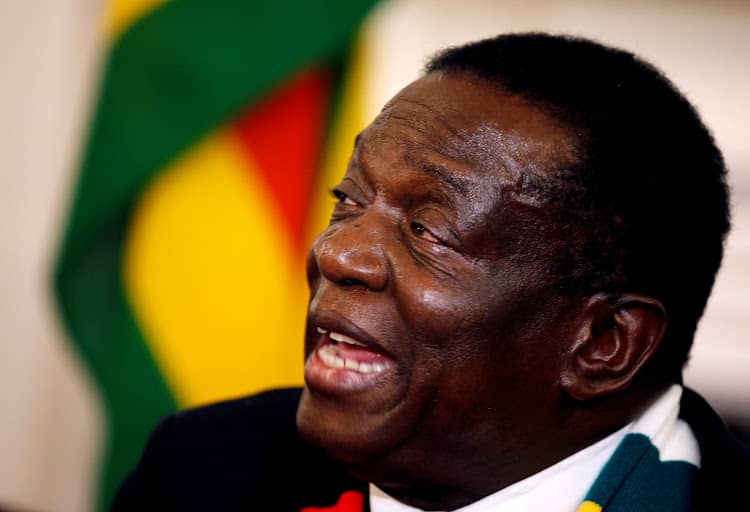Ed’s Temporary ban: far-reaching consequences

BRUISED NOSE: Zimbabwe President Emmerson Mnangagwa
IN a move that shocked the economy to the core, President Emmerson Mnangagwa early this month ordered banks to stop lending, to, ostensibly, halt the Zimbabwean dollar’s rapid devaluation on the black market.
Barely a week after the announcement, the central bank lifted the bank lending ban, but the damage was already done.
For instance, Zimbabwe’s biggest dairy products processor, Dairibord Holdings Limited suspended a planned dividend payout to shareholders to protect the business following the controversial lending directive.

Dairibord was due to pay out $187 million in dividend for the year ended December 31, 2021.
Dairibord chief executive Anthony Mandiwanza told our sister paper NewsDay that working capital had become crucial, adding that it did not make sense to pay a dividend at the expense of working capital requirements for the business.
The move inconvenienced shareholders because it denied them a chance to receive their dividend payout on time.
Again, sugar producer Tongaat Hulett announced suspension of advanced payments to millers working with the company following suspension of lending by banks.
This resulted in the price for a 2kg packet of sugar rising from US$1,90 to US$3,25, triggering panic buying by citizens. Sugar is currently scarce in the country.
Notably, the price of sugar remained high despite the government lifting the ban on bank lending.
Fivet, a livestock health and feedstock supplier, suspended sales, while Surrey, another agriculture processing company, asked farmers to stop supplying livestock to its abattoirs.
Hotelier Cresta Hospitality reacted by announcing that it was, with immediate effect “no longer in a position to offer credit terms for all Zimbabwe dollar business transactions.”
Zimbabwe Stock Exchange-listed companies were also affected as they sought to preserve cash in anticipation of an expected credit crunch.
Another major casualty of the measures was loss of confidence in the banking sector.
Zimbabwe’s financial services sector has in the past been hit by periods of hyperinflation and currency changes, with the burden of value loss absorbed by the banking public.
This has weakened confidence in the sector.
Financial sector policies should drive confidence in local banks if they are going to effectively play their financial intermediary role. Banks are fundamental to domestic savings mobilisation, and low confidence in the sector is undermining that role.
Measures not helping situation
It will take time for the banking sector to regain the lost confidence as a result of government’s inconsistency, which is needed to attract savings.
Savings critical for economy
The Zimbabwe banking sector is characterised by well capitalised banking institutions with average capital adequacy ratio of 30,04% above the regulatory limit of 12%, but still needs to recover lost public confidence.
Business groups had warned that the lending freeze would hurt commerce and worsen Zimbabwe’s economic crisis.
Economic research firm Morgan & Co said the lending freeze would hurt Zimbabwe’s already fragile economy.
In a research paper titled: Unpacking the currency and exchange rate dynamics in Zimbabwe and future outlook, Gift Mugano, an economics professor at several top regional universities including the University of Zimbabwe, said this was a serious policy misstep.



